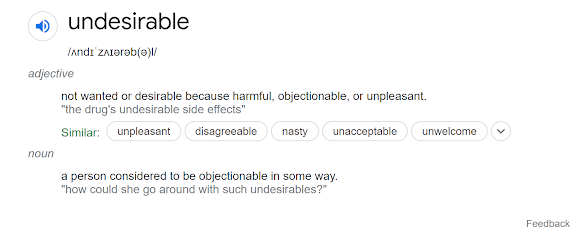A Pre-covid Literature for a Post-covid World!
So, as an experienced online learner, I found myself wondering exactly what is harmful, objectionable or unpleasant about online learning? My experience as a distance learning student has always been a pleasant one. I've always enjoyed being part of online communities and networks where I can share my thoughts, ideas, resources, concerns and in turn receive support from people who are accepting and inclusive.
"Isolation, however, refers to the absence of sufficient interactions whereby integration may be achieved. It is that condition in which persons find themselves largely isolated from the daily life of the institution ... Incongruence is almost always an unavoidable phenomenon within institutions of higher education. Isolation, though common, need not occur." (Tinto, 1993, p.50)
Wow - this is a powerful statement and, in the context of a post-covid landscape, hugely significant! I looked at more recent studies and found similar definitions. Post-covid, the number of students reporting mental health issues and feelings of isolation were huge! Yet, technology enables text messaging and video calls at the click of a button. So,if those individual interactions that can help to prevent isolation are arguably easier than ever to execute, what's going wrong? So when the author goes on to say:
"...isolated students differed only in their failure to have established a significant personal tie with someone on campus, faculty or student..." (Tinto, 1993, p.56)
...then he identifies a huge challenge for institutions moving forward to provide opportunities for learners to not just connect, but to develop significant personal ties. What does that look like? In addition to our outcome focused assessment goals, who assumes responsibility for the pastoral care of online students? Perhaps its easier to care about students that you see daily in a face to face setting, but when you don't know what a person looks like, or what's going on in their life, how can you make an impact?
When I think about my attempts to develop significant personal ties with learners, I think about a student that I've been working with this year (for the purposes of this article, let's call him Jay). From my observations within the class it was clear that Jay was struggling to integrate with his classmates and his attendance was dropping. One afternoon I took the initiative to send the class to the library on a directed study assignment largely because I wanted to have a chat with this young man and I can honestly say it's the best thing I've done. He began to relay details about his mental health and his personal circumstances that I wasn't aware of. But I recognised so much of his situation having had similar experiences in my own upbringing and I was open with him in sharing that.
Since then Jay checks in with me every week, whether online or digitally, he sends me work, I provide feedback etc. but our relationship has now developed to the extent where I can ask him how he's doing, ask about his welfare, and similarly share comments like, "Now you know there's a deadline coming up next week - don't let me down!" He responds to that and is making fantastic progress in developing his confidence and his literacy since I took a personal interest in his welfare. So today I was thrilled to read:
"Classroom behaviours influence student perceptions as t the receptivity of faculty to further student contacts outside of the classroom." (Wilson, Wood and Galf, 1974; Astin, 1975 as cited by Tinto, 1993, p. 57))
I love little affirmations like that. I'm loving reading this book in general - does that make me a geek? My plan however is to keep reading and sharing my thoughts and reflections as I read through this book over the coming weeks.
If anyone else has any thoughts or comments, whether you've read this book, had similar or different experiences, I'd love to hear them.
You can follow me on twitter @McintoshMclean.
References
Tinto, V. (1993) Leaving
College: Rethinking the Causes and Cures
of Student Attrition [ebook reader], London, University of Chicago
Press.







Comments
Post a Comment